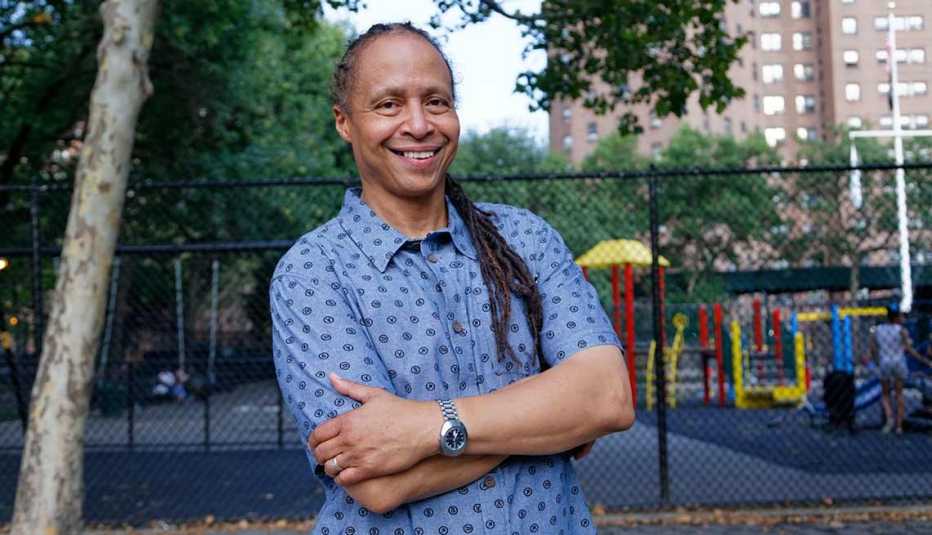AARP Hearing Center


This former Black Panther has created a refuge where young people can escape the violence in their lives, learn leadership skills and create art for social change.
Jamal Joseph was used to hearing gunshots and sirens. The crack epidemic was raging hard in Harlem in the late 1980s; gang battles were common. But in 1997, everything changed. A 16-year-old neighbor was shot and killed in a nearby housing project. As Joseph’s wife and other women tried to console the boy’s devastated mother, Joseph stood apart, helpless and angry.
Joseph, an award-winning filmmaker and Columbia University professor, was no stranger to street life. He grew up in foster care in the Bronx, joined the Black Panthers at age 15 and served time for Panther-related activities. And Joseph was still mourning the 1996 murder of his godson Tupac Shakur. He had three children of his own. The dead boy could have been one of them.
Joseph, who is now 62, considered fleeing Harlem for more peaceful terrain.
“I felt incapable of doing anything about the violence and despair that was taking young black lives right outside my window,” he says.
Instead, Joseph stayed put and tapped the social activism that drew him to the Panthers decades earlier. As the volunteer artistic director of a youth arts organization in downtown Manhattan, Joseph decided to bring arts for youth to Harlem – to create a refuge from the streets and help kids make sense of their immediate world. “Kids in our community didn’t feel safe, and they felt hopeless,” he says.
His vision: blending music, dance, drama and leadership. “Young people would learn to tell and perform their own stories and carry their message from the stage into their own lives and neighborhoods,” he says. “They would learn and practice art for social change.”
IMPACT Repertory Theatre began in a community center basement with nine students – including Joseph’s three children. Within a year, 75 kids had joined.
Today, some 1,500 young people have been part of IMPACT in New York. (Another 4,000 youth have participated in IMPACT-led workshops at schools and community centers in New York, Philadelphia and Atlanta.) They study peer leadership, conflict resolution and time management. They write about bullying, gangs and racial profiling; they perform at Lincoln Center and the United Nations and at schools, nursing homes and prisons.
In 2002, IMPACT’s curriculum became more rigorous, starting with a 12-week, intensive “boot camp,” during which children name their dream colleges before receiving their coveted IMPACT T-shirt. Workshops in conflict resolution and peer leadership run in tandem with creative-writing and music sessions. Boot campers commit to regular community service and keeping up their grades; they are also required to keep journals of their experience and participate in regular exercise. About 75 percent of IMPACT youth who stay with IMPACT through high school graduate and go on to college.


































































